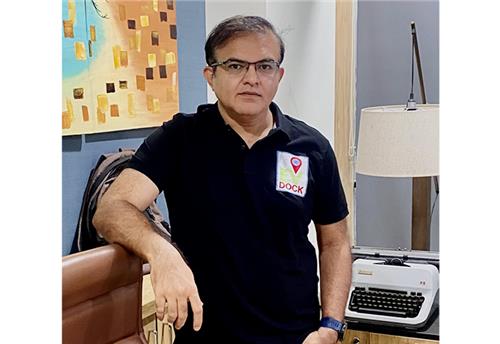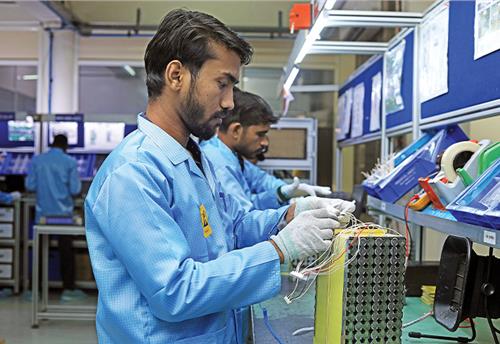IoT: the smart way to reduce transport risk and operational costs
The logistics industry can benefit from various IoT devices like smart theft sensors and remote digital locks for freight safety, GPS and RFID-based systems to provide visibility for in-transit carriers, and weight, speed and fuel sensors for better asset utilisation.
It’s a well-known fact that the logistics industry impacts a very large segment of business worldwide with an estimated market size of more than four trillion. Logistics is a key growth parameter for most industries and sectors including e-commerce and manufacturing. Due to poor road conditions and long waits on tolls, Indian trucks travel only 20 days a month as compared to 25 days in developing countries. According to a survey, the average speed of trucks is 20kph. So, a truck in India can cover only 250-300km a day compared to 700-800km in developed countries such as the US and Europe.
Common risks operators face in India
Some of the risks that operators in India face include delayed deliveries, non-performance, unavailability of shipment status, theft of goods and hijacking.
Uttar Pradesh tops the list in terms of trucking- related thefts. According to 2014 data of the National Crime Record Bureau (NCRB), of the 84,000 cases of dacoity and thefts on highways across the country, Uttar Pradesh had 65,000 cases – almost 80 percent of the total.
State Crime Record Bureau (SCRB) 2015 data reveals that as many as 2,250 cases of robbery – the maximum across India – were reported across the highways and roads in Uttar Pradesh.
There are 250,000 trucking companies in India, more than six million trucks on the road, and 80 percent of the cargo is handled by road transportation in India. More than 75 percent of the market is dominated by small transportation companies in India (having a fleet size less than three). Logistics cost make up 13-14 percent of India's GDP in comparison with foreign countries where it is 8-9 percent.
The logistics industry as a whole has been working in traditional ways for decades and is still highly unstructured in India. However, what we are witnessing now is the beginning of transformation of this vintage industry. This is thanks to a combination of new-generation entrepreneurs, improved skill sets, technology penetration and investments.
The Internet of Thing (IoT) is changing the face of a very unorganized logistics sector, adding great value in day-to-day operations.
Impact of IoT
As per a study report conducted by DHL and Cisco in 2015, IoT is impacting our lives and will have huge implications on the logistics business. Till 2020, we will have 50 million connected devices and embed sensor technology that will bring visibility into operations and will transform how logistics providers make decisions, including about how goods are stored, monitored, routed, serviced, and delivered to customers, as well as operational health and safety practices.
Moving forward, technology will play an important role to address the risks and operational cost overheads, bringing more accountability, transparency and efficiency in the entire value chain associated with transportation of goods.
Here’s looking at some of the technologies already available or on the horizon, all of them capable of uplifting the Indian transport sector.

GPS trackers
GPS trackers are very helpful when it comes to real-time tracking of vehicle and shipment. An advanced GPS tracker with sensors like ignition, weight and speed will help to avoid theft of shipments and on- time delivery of shipment. Efficient asset utilisation through monitoring the locations and status of vehicles also provides an important insight as to the readiness of vehicles to be reloaded or sent to another trip. GPS trackers help also in real-time delivery notification, vehicle and driver safety, managing fuel consumption and offering better customer service.
RFID-based trackers
RFID-based logistics management systems provide end-to-end supply chain automation system. They help automate the process of transportationfrom the loading of products/packages onto trucks to their final delivery at the destination point. RFID based systems have the capability to perform various actions like identification, access control, verification, analysis and maintenance. The amount of products in terms of number of items/ weight is attached to the associated tags, and accurate measurement is maintained throughout. This also ensures product identity and complete traceability during transition or delivery.
GPS-based mobile Apps
GPS-based mobile applications are one of the best solutions that help provide real-time tracking and management of vehicles and shipments. Features like real-time POD submission through apps will help transporters to get on-time freight payments. A notification system based on the vehicle location will keep the shipper uptodate with shipments. Such apps can be very useful to transporters as they can have better ‘visibility’ of their vehicles in terms of how many are idle and how many are plying on the road. Thus,based on real-time availability, fleet operators can take new bookings and avoid losses, which typically happen due to miscommunication from drivers.
GPRS-based digital locks
Goods security is a major concern among shippers as well as transporters. Especially in the case of uninsured freight shipments, any kind of theft to shipment has to be handled by the transporter in the form of a penalty. GPRS-based locks controlled by mobile apps or cloud-based web apps can be considered as a very good way to prevent any kind theft on a vehicle. This kind of lock will be very useful for containerised trucks and closed body trucks with single entry and exit point. A combination of digital lock and GPS tracker can be a complete solution for shippers and transporters to track all activity related to shipment along with complete shipment security.
For the logistics sector, companies are developing various types of IoT devices like smart theft sensors and remote digital locks for freight safety, GPS and RFID-based systems to provide visibility for in transit carriers, weight, speed and fuel sensors for better asset utilisation.
Luke Sequeira, founder and CEO of Numadic, one of the leading IoTsolutions providers, says: “Without IoT on your assets and equipment, you are in the same boat as a company that doesn't want its sales people to have cellphones. The difference between a loading/unloading time of two hours and six hours is that an entire day may be lost in delivery time, due to entry permissions in certain urban regions and traffic. IoT and fleet tracking analytics help to predict the optimum time to load/unload. With our ‘Nubit’ doors sensors and capacity sensors, we calculate the loading and unloading time and also benchmark this against the rest of the fleet. Integrations into the vehicle's computers through the OBD II port allow us to also monitor engine and vehicle health and map this out to potential breakdowns that can cause delays. Finally, and most simply, logistics is mostly a human operation in India and we help managers monitor and incentivise forklift and truck operators to drive better and safer, reducing the chances of loss and delay”
An ounce of prevention is worth a pound of cure. While these devices will involve some additional investment,importantly they enable sizeable savings in terms of freight security and on-time delivery. Additional visibility in trucking operations also creates fleet efficiencies, improves fuel economy and reduces deadhead miles, which account for up to 10 percent of truck miles.
Photographs: Subhash Simhudu
RELATED ARTICLES
Renault-Nissan Alliance rebooted
The Franco-Japanese alliance is all set to unveil an ambitious SUV line-up amidst fresh investments of Rs 5,300 crore in...
BRANDED CONTENT: Eliminating the worries of battery charging with smart solutions
The charging infrastructure is the backbone of electric mobility but is also one of the key perceived barriers to EV ado...
The battery-powered disruptor
Greenfuel Energy Solutions is planning to shake up the EV battery market with the launch of a portfolio of specially eng...





 23 Jun 2017
23 Jun 2017
 27728 Views
27728 Views



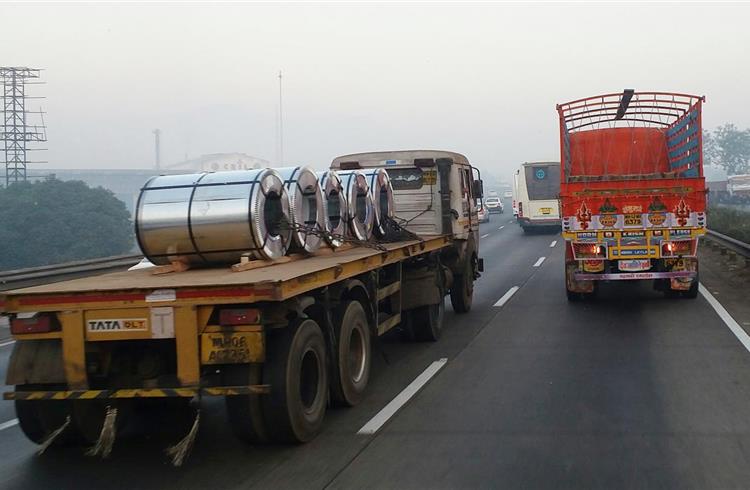
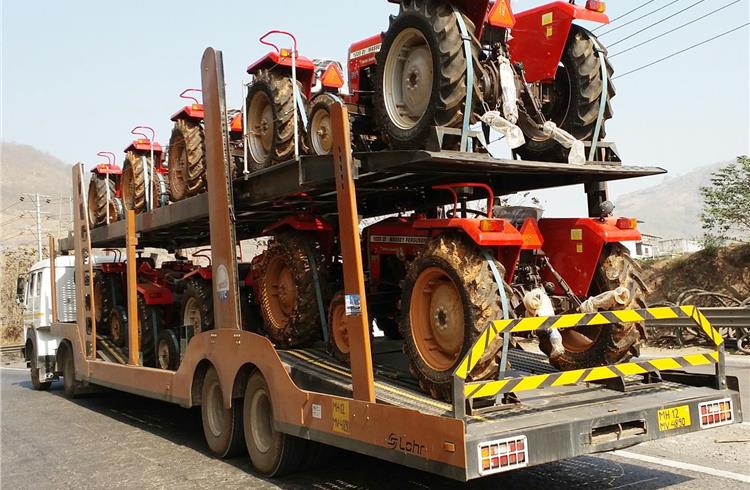
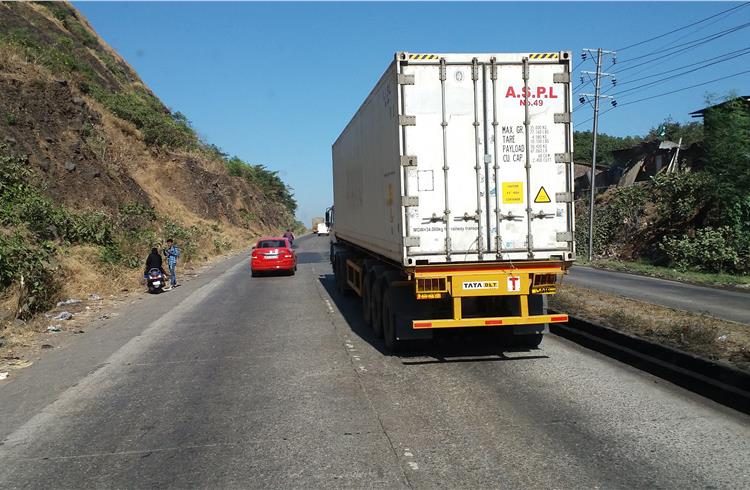
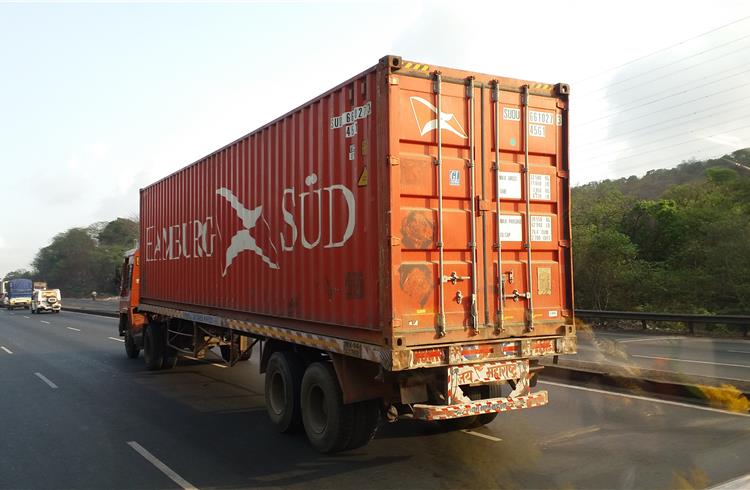
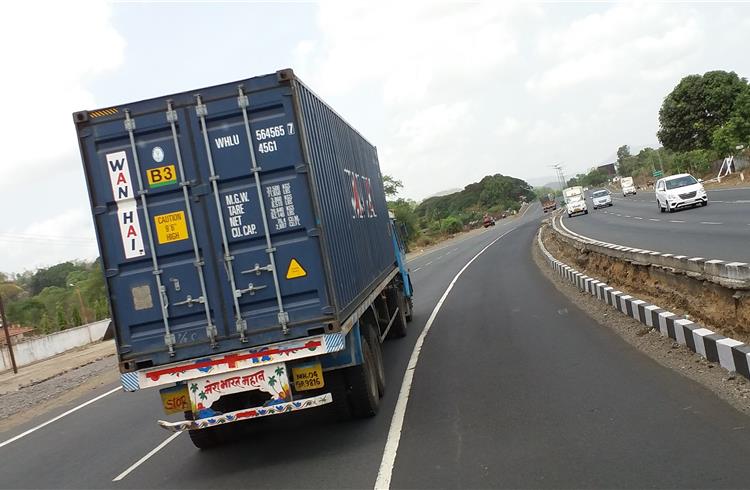
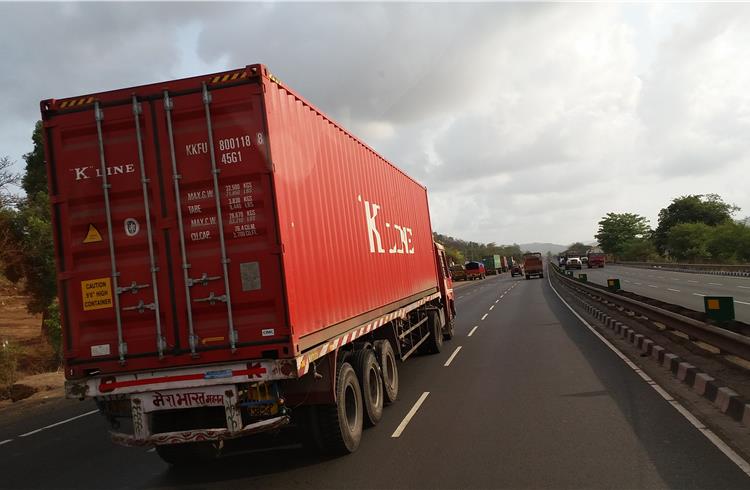
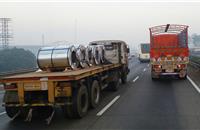

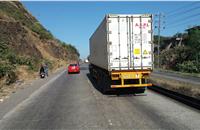
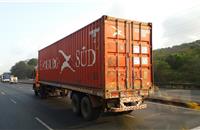
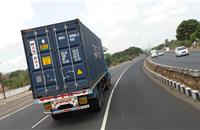
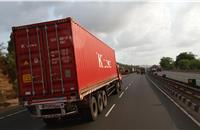

 Autocar Pro News Desk
Autocar Pro News Desk

